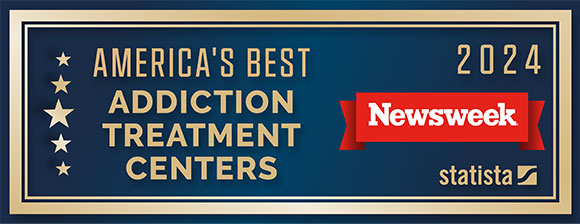At Oro House, our recovery facilities use a wide range of evidence-based Treatment Modalities and Therapies in Los Angeles and Malibu. These have proven to be effective for treating drug and alcohol addiction as well as dual diagnosis mental health disorders.
Many of the treatment modalities are used in individual and group therapy sessions for our clients, and the techniques learned can be used as tools for a long-lasting sobriety.
Each of our clients receives an assessment before beginning our recovery program and a personalized treatment program is created that best suits each person’s individual needs.

Contact Us To Find Out the Treatment Modality For You
Addiction Treatment Modalities Used at Oro House
- Cognitive Behavioral Therapy (CBT)
- Dialectical Behavior Therapy (DBT)
- Motivational Enhancement Therapy (MET)
- Relapse Prevention Therapy (RPT)
- TMS Therapy (Transcranial Magnetic Stimulation)
- Motivational Therapy and Motivational Interviewing
- Neurofeedback Therapy
- EMDR – Eye Movement Desensitization and Reprocessing
- Existential Therapy (ET)
- Acceptance and Commitment Therapy (ACT)
- Psychodrama Therapy
- Rational Emotive Behavioral Therapy (REBT)
- Seeking Safety
- Somatic Experiencing
- Psychodynamic Therapy
- Person-Centered Therapy
- Meditation Teaching Program
Oro House Addiction Treatment Therapy
These are some of the most popular and effective treatment therapies we use on a regular basis and we add new ones as they become available and there is evidence they will be effective.
Cognitive Behavioral Therapy (CBT)
Cognitive Behavioral Therapy (CBT) is a form of therapy that focuses on how a person’s thoughts, beliefs, emotions, and behaviors interact with each other. The goal is to learn ways to cope with emotional problems and change destructive patterns and automatic negative thoughts.
CBT was originally developed for depression, and over time it has shown to be effective for overcoming drug or alcohol addiction, eating disorders, family problems, anxiety, and other mental health conditions. Learn more about Cognitive Behavioral Therapy.
Dialectical Behavior Therapy (DBT)
Dialectical Behavior Therapy (DBT) is an evidence-based form of cognitive behavioral therapy that was first developed by Marsha Linehan, PhD, for treating Borderline Personality Disorder. It is now also used for treating substance addiction, mood disorders, self-harm and suicidal ideations.
The 4 Modules of Dialectical Behavior Therapy include:
- Mindfulness
- Interpersonal effectiveness
- Distress tolerance
- Emotion regulation
Motivational Enhancement Therapy (MET)
Motivational Enhancement Therapy (MET) is a short-term approach usually conducted over four individual sessions, one-on-one with a trained therapist, with the goal of overcoming any indecision or hesitation about addiction or treatment.
MET was adapted from Motivational Interviewing and is beneficial for alcohol or drug use and helps the client set realistic personal goals that allow them to succeed. Learn more about Motivational Enhancement Therapy.
Relapse Prevention Therapy (RPT)
Relapse Prevention Therapy (RPT) provides each client with the tools and techniques to overcome the possibility of a relapse when they leave our treatment program.
RPT teaches coping skills for dealing with triggers and cravings, and examines behavioral actions to identify and respond to reactions caused by lifestyle factors or an individual’s environment that might lead to a relapse. Learn More About Relapse Prevention Therapy
TMS Therapy (Transcranial Magnetic Stimulation)
TMS Therapy, also known as Transcranial Magnetic Stimulation, was originally approved by the FDA for treatment resistant depression and has since shown to work well for other mental health issues and addiction.
It is called Transcranial Magnetic Stimulation because it uses a safe and painless magnetic pulse to stimulate areas of the brain that are involved in mood and emotions. TMS is often used when medications or other traditional treatments have not shown to be effective. Learn about our TMS Therapy in Malibu and Los Angeles.
Motivational Therapy and Motivational Interviewing
Motivational Therapy and Motivational Interviewing are actually different but very similar styles of treating substance abuse and dependency. Like Motivational Enhancement Therapy, the focus is on contemplating and determining to make behavioral changes.
This type of treatment modality works with a therapist and allows for an open dialogue of discovery and goal setting between the client and therapist.
Neurofeedback Therapy
Neurofeedback Therapy sometimes goes by the names Neurotherapy or EEG Biofeedback, and trains the brain to function better by identifying and managing neural activity using a computer.
This non-invasive approach measures brainwave activity in real-time to analyze and locate potential imbalances that might be causing anxiety, depression, post-traumatic stress disorder (PTSD), or addiction, among others. Learn more about Neurofeedback Therapy.
EMDR - Eye Movement Desensitization and Reprocessing
EMDR stands for “Eye Movement Desensitization and Reprocessing” and it is an evidence-based form of psychotherapy developed by Francine Shapiro for treating PTSD. It focuses on negative thoughts, feelings, and behaviors related to unprocessed memories and eye movements.
EMDR has also shown to be successful for treating OCD, depression, anxiety disorders, borderline personality disorder, substance use cravings, and other conditions. Learn More About EMDR Therapy
Named Best Luxury Malibu Rehab by Newsweek

Existential Therapy (ET)
Existential Therapy is a type of psychotherapy that examines responsibility, the meaning of life, and death, while exploring a person’s experiences as they relate to these concepts.
It is often used for anxiety, depression, and other mental health issues, and views these as a normal process of life.
Acceptance and Commitment Therapy (ACT)
Acceptance and Commitment Therapy (ACT) is a behavioral analysis form of psychotherapy that uses mindfulness techniques to help clients move past becoming stuck with negative thoughts and behaviors.
It is similar to Cognitive Behavioral Therapy except it teaches people to notice and accept thoughts and feelings rather than trying to change them. Learn More About ACT Therapy
Psychodrama Therapy
Psychodrama Therapy is an experiential strategy method used in group sessions that involves role-playing to gain insight or a new perspective on difficult emotional challenges.
This type of therapy works well for resolving problems and developing new life skills and tools to overcome loss or grief.
Rational Emotive Behavioral Therapy (REBT)
Rational Emotive Behavioral Therapy (REBT) is a form of psychotherapy that addresses overcoming emotional and behavioral issues to live a happier life.
REBT is the first form of cognitive behavioral therapy developed by Albert Ellis to identify guilt, shame, self-pity, and other thoughts and emotions for overcoming anxiety, depression, addiction, and other problems. Learn More About REBT Therapy
Seeking Safety
Seeking Safety is a form of cognitive behavioral therapy that teaches coping skills for trauma, PTSD, and substance use addiction.
This is an evidence-based therapy that can be used in one-on-one or group sessions and is available in an inpatient or outpatient treatment environment.
Somatic Experiencing
Somatic Experiencing is an alternative therapy developed by Peter A. Levine for alleviating the symptoms of PTSD and trauma-related mental health conditions.
Studies have shown positive results for using this type of therapy for PTSD and it may also help with other mental health issues.
Psychodynamic Therapy
Psychodynamic Therapy uses an in-depth examination of the client’s unconscious thoughts related to self-awareness, unresolved conflicts, relationship problems, and self-harm or addiction issues.
The therapist and client should have a very strong relationship with open and honest communication for this to be effective.
Person-Centered Therapy
Person-Centered Therapy was developed by Carl Rogers and is used in individual sessions instead of in groups.
The client leads the sessions with the therapist offering support in a non-judgmental role to keep the sessions moving in a positive direction.
Meditation Teaching Program
The Oro House Meditation Teaching Program introduces our clients to the value and effectiveness of meditation to address the psychological hold addiction and mental health conditions like stress or anxiety can have on them.
The therapist’s role is one of supervision and the client takes an active role in learning meditation techniques that they can do on their own without supervision to use in their personal life even after they leave treatment.